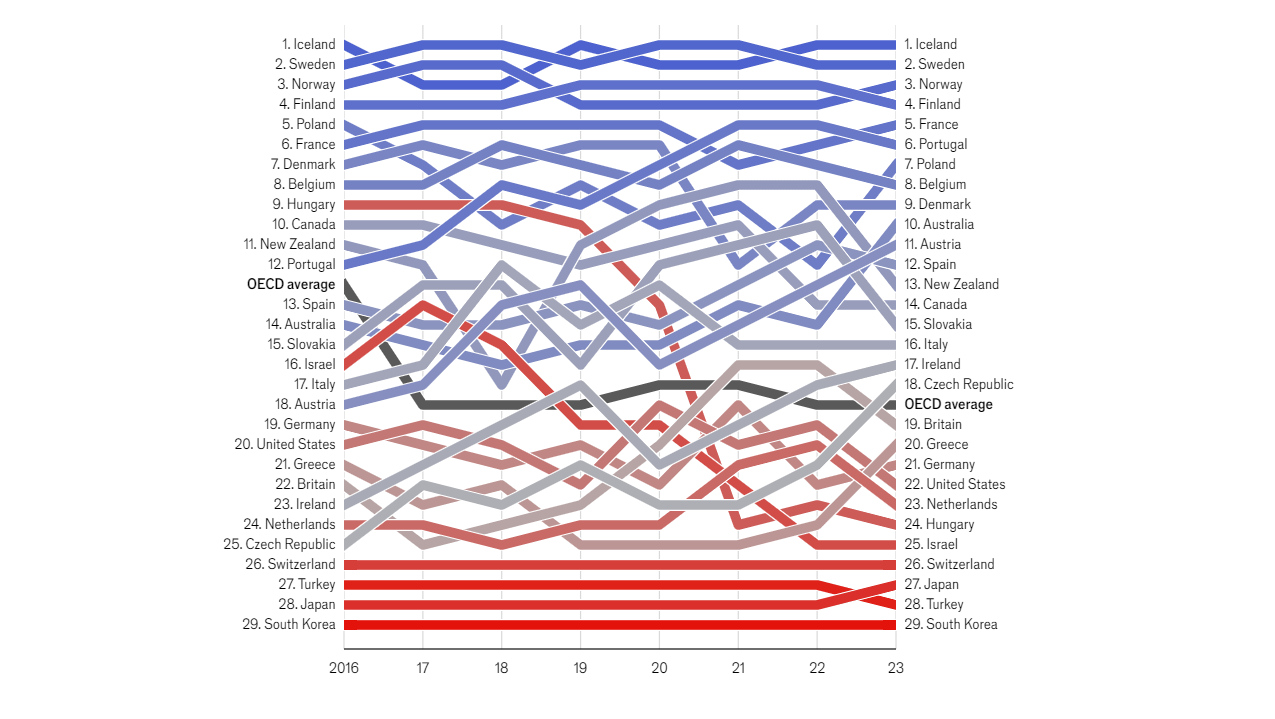International Women’s Day (IWD) is celebrated on March 8 each year. To celebrate the occasion, The Economist published its yearly glass-ceiling index, which looks at how well women are treated at work in 29 countries that are part of the Organization for Economic Co-operation and Development (OECD).
What is OECD?
What Does OECD Do?
Basis of Ranking
The Glass-Ceiling Index evaluates working conditions for women across 29 OECD nations. It uses a ten-point criteria system:
Top 10 Countries for Working Women
- Sweden (Rank 1)
- Iceland (Rank 2) (Previously No. 1 for two years)
- Finland
- Norway
- Portugal
- New Zealand
- France
- Spain
- Denmark
- Australia
Key Insights from the Ranking
Economic Participation
The economic landscape for women is improving. Women’s participation in the labour force rose to 66.6%. This marks an increase from 65.8% the previous year. However, this figure remains lower than men’s participation at 81%. The presence of women on corporate boards increased to 33%. This indicates a positive trend in leadership roles for women.
Political Participation
In 2024, women’s political representation saw a notable increase. The OECD reported an average of 34% representation in parliaments. Countries like Japan and Britain made strides. Japan’s representation rose to 16%, while Britain reached 41%. However, the United States experienced a decline to 28.7%.
Changes in Rankings
South Korea made leap from the bottom of the rankings to 28th place. This marked its first improvement in 11 years. Turkey now holds the lowest ranking. Japan, Turkey, and South Korea struggle with deep-rooted societal norms. These norms contribute to the under-representation of women in leadership roles. All three countries show low numbers of women in management, parliamentary roles, and corporate boards.
Current Challenges
Despite advancements, challenges remain. Women in Japan, Turkey, and South Korea face barriers. These barriers include a persistent wage gap and cultural expectations. The representation of women in leadership roles is still low in these nations.

Leave a Reply